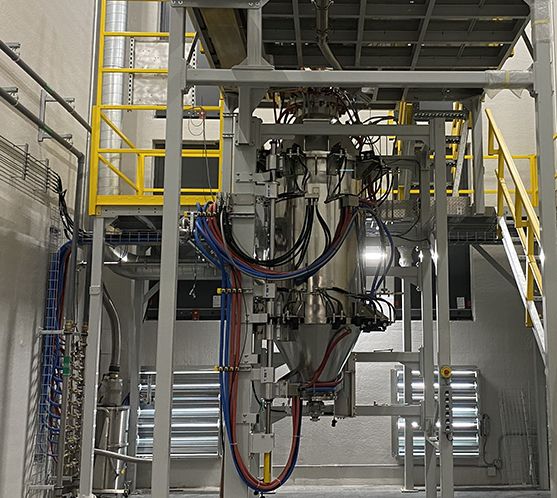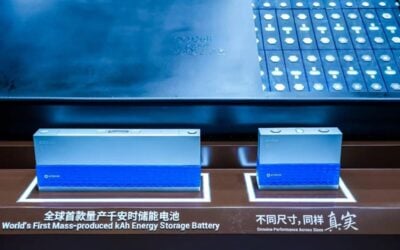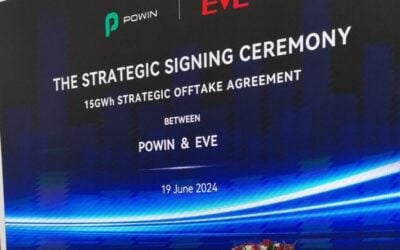
Awardees of US government grants worth a total US$2.8 billion to support and develop the domestic manufacturing of batteries for electric vehicles (EVs) and the electric grid have been announced.
The funding results from the Bipartisan Infrastructure Law passed by the Biden-Harris Administration late last year as part of the Infrastructure Investment and Jobs Act.
Enjoy 12 months of exclusive analysis
- Regular insight and analysis of the industry’s biggest developments
- In-depth interviews with the industry’s leading figures
- Annual digital subscription to the PV Tech Power journal
- Discounts on Solar Media’s portfolio of events, in-person and virtual
The first awards, announced yesterday, will go to 20 manufacturing and processing companies in 12 US states. They were selected on a competitive basis from more than 200 applicants in a process which opened up in February.
Giving a speech, President Biden talked about his industrial strategy “to bring America back manufacturing and industries of the future: semiconductors and clean energy”.
A key part of that is to invest over US$7 billion into battery supply chains to bolster US capacity for processing, manufacturing, and recycling of critical minerals, including lithium, nickel and graphite.
According to the president, the first US$2.8 billion of grants will generate more than three times that amount in economic benefits from the commercial-scale battery production and processing facilities they will help build.
At the same time, Biden launched the American Battery Materials Initiative, which aims to coordinate federal government efforts and work with private and public sector organisations, unions, different communities and governments abroad.
It will be led by the White House, administered by the US Department of Energy and supported by the Department of the Interior in leveraging and growing the battery materials supply chain. Biden noted that it will help “secure America’s electric vehicle battery supply chain and clean energy future”.
A lot of recent energy storage industry optimism in the US has been buoyed by the Inflation Reduction Act (IRA) and how it will unlock valuable tax credit incentives for standalone energy storage projects from a total US$369 billion package of support for clean and distributed energy.
However, the Bipartisan Infrastructure Law that came a few months before the IRA is designed to be the engine behind that accelerated deployment of battery storage, not least because the IRA’s investment tax credit (ITC) will be paid out at much higher rates of 30% for projects made with requisite locally produced content and local unionised labour, versus just 6% for those that do not.
Funding for lithium extraction, cathode production, R&D and more
The money will go to a broad range of companies in the upstream battery sector. It combines the scaling up of US production of existing mature technologies, like lithium iron phosphate (LFP) cathodes and graphite anodes, which are currently almost exclusively sourced from Chinese imports, with R&D funding for more innovative technologies at earlier stages of commercialisation, like silicon anodes and advanced battery production techniques.
There are also raw materials production projects that will be supported, with lithium extraction an urgent area of focus for the battery industry around the world.
In each case, companies receiving awards, ranging from US$50 million to more than US$300 million will share the costs of their projects with significant sums of money that in some cases match or are greater than the grants.
To see a Department of Energy fact sheet detailing all the winners’ projects and their grant funding and cost share stats, go here.
Energy-Storage.news’ publisher Solar Media will host the 5th Energy Storage Summit USA, 28-29 March 2023 in Austin, Texas. Featuring a packed programme of panels, presentations and fireside chats from industry leaders focusing on accelerating the market for energy storage across the country. For more information, go to the website.






